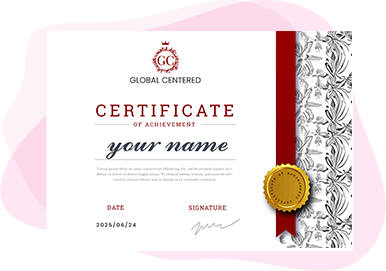GMETMR-Geochemical Exploration Techniques for Mineral Resources 01
Mar/2025
English
A course by
Description
Introduction
This course provides a fundamental understanding of geochemical exploration techniques and their applications in mineral resource discovery. It introduces participants to the geochemical properties of ores, sampling methods, and basic data interpretation. Special emphasis will be placed on their application in phosphate, gold, and bauxite exploration.
Date
Day | Time | Price | Country |
|---|---|---|---|
Mon – Wed | 8:00 – 10:00 | $5/hrs | Turkey |
Tue – Thu | 18:00 – 19:00 | $5/hrs | Turkey |
Wed – Fri | 20:00 – 21:00 | $5/hrs | Turkey |
Sat – Sun | 18:00 – 19:00 20:00 – 21:00 | $8/hrs | Turkey |
This Training Course Will Highlight
- Basic principles of geochemistry and its role in mineral exploration.
- Types of geochemical sampling methods – soil, stream sediment, rock, and drilling samples.
- Geochemical pathfinders and indicator elements for mineral deposits.
- Field-based sample collection techniques and quality control (QA/QC).
- Basic interpretation of geochemical anomalies for ore body detection.
Objectives
- Understand the fundamental principles of geochemical exploration.
- Learn about geochemical dispersion patterns and mineral pathfinders.
- Develop an understanding of geochemical sampling and analysis techniques.
- Identify and interpret basic geochemical anomalies in exploration.
- Recognize the importance of QA/QC procedures in geochemical data collection.
Training Methodology
- Instructor-led lectures on geochemical principles.
- Practical demonstrations of sample collection and preparation.
- Basic data processing and interpretation exercises.
- Fieldwork discussions on geochemical surveys in real-world exploration.
- Interactive Q&A sessions with geochemists.
- Case Study: Geochemical analysis of a phosphate, gold, or bauxite deposit.
Organizational Impact
- Enhances early-stage exploration capabilities through geochemical techniques.
- Improves targeting efficiency in mineral exploration programs.
- Strengthens exploration teams’ technical capabilities in geochemical data collection.
- Supports better decision-making in exploration project planning.
- Reduces exploration risks and improves efficiency in resource assessment.
Personal Impact
- Develops fundamental skills in geochemical sampling and analysis.
- Improves understanding of geochemical survey results.
- Strengthens knowledge of geochemical pathfinders in mineral deposits.
- Expands career opportunities in mineral exploration and economic geology.
- Builds confidence in basic geochemical data interpretation.
Who Should Attend?
- Entry-level geologists and mining engineers.
- Junior exploration geochemists in mining companies.
- Government and regulatory personnel involved in mining oversight.
- Environmental specialists working in geochemical baseline studies.
- Undergraduate geology and mining students.
- Technical staff in geological survey organizations.
- Professionals transitioning into the field of geochemical exploration.
Course Outline
Day 1
Introduction to Geochemical Exploration- Principles of geochemistry in mineral exploration.
- Geochemical properties of phosphate, gold, and bauxite deposits.
- Primary vs. secondary geochemical dispersion – understanding mineral transport.
- Geochemical cycles and weathering processes affecting mineral deposits.
- Introduction to geochemical sampling strategies.
- Geochemical methods used in a phosphate exploration project.
Day 2
Geochemical Sampling Methods and Field Techniques- Types of geochemical sampling – soil, stream sediment, rock, and drilling samples.
- Best practices for sample collection and preparation.
- Sample storage, transportation, and contamination prevention.
- Geochemical pathfinder elements and their role in mineral exploration.
- Field equipment and tools for geochemical surveys.
- Stream sediment sampling for gold exploration.
Day 3
Laboratory Analysis and QA/QC Procedures- Sample preparation and laboratory techniques – digestion, fusion, and XRF analysis.
- Atomic Absorption Spectroscopy (AAS) and Inductively Coupled Plasma (ICP) methods.
- Geochemical quality control (QA/QC) – duplicate sampling and standards.
- Understanding detection limits and geochemical background levels.
- Data validation and error reduction in geochemical analysis.
- Laboratory workflows in geochemical analysis.
Day 4
Interpretation of Geochemical Data and Anomalies- Statistical methods in geochemical data analysis – mean, median, standard deviation.
- Thresholds for anomaly detection – geochemical background vs. ore-related anomalies.
- Geochemical mapping and contouring techniques.
- Multivariate geochemical analysis and element correlation.
- Regional vs. local geochemical anomalies – case examples from exploration projects.
- Interpretation of geochemical data from a bauxite province.
Day 5
Integration of Geochemical Data with Geological and Geophysical Surveys- How geochemical data enhances geological and geophysical exploration techniques.
- Combining geochemistry with remote sensing for mineral targeting.
- Using geochemical methods for environmental monitoring in mining.
- Challenges in geochemical exploration and data misinterpretation.
Cancellation policy
no refund is accepted
Certificate


Free
Skill level Beginner
100% positive reviews
Language: English
Assessments: Self
Step Into a World of Knowledge and Growth
Imagine a place where learning is not just about theory
Courses you might be interested in
Introduction This advanced-level training program is designed for senior geologists, exploration geochemists, and mining professionals who seek to enhance their expertise in geochemical modeling, anomaly interpretation, and predictive mineral exploration...
-
0 Lessons
Free
Introduction This intermediate-level course builds on fundamental geochemical knowledge, focusing on advanced data analysis, exploration geochemistry, and integration with other geological datasets. The training will emphasize the detection of concealed...
-
0 Lessons
Free
Free

